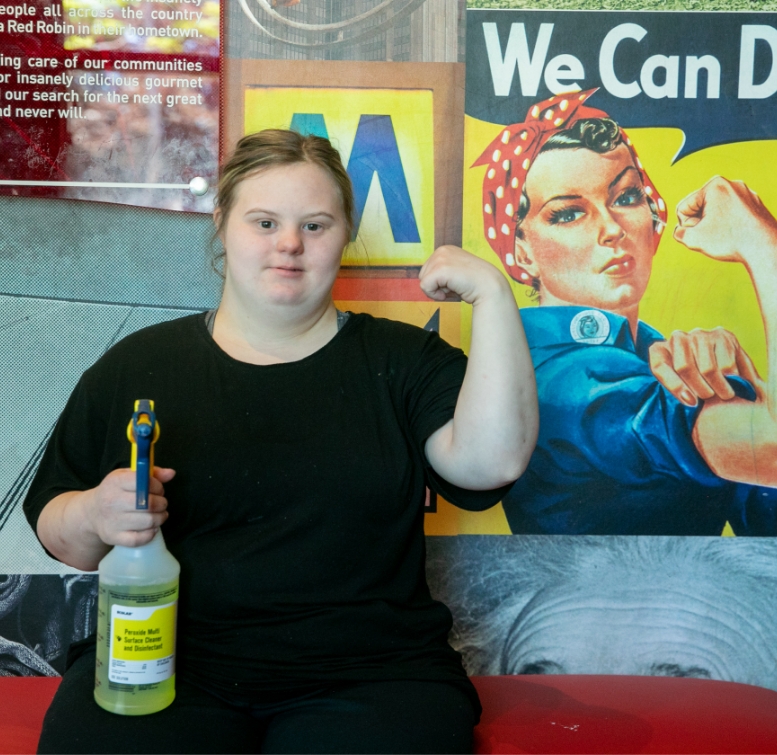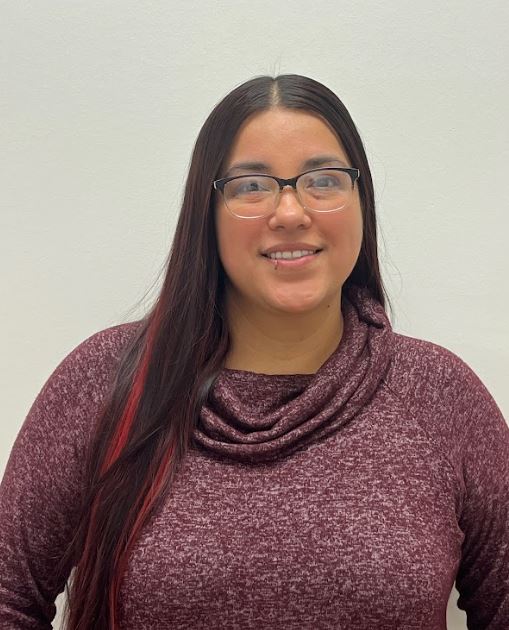This is who we are
We are a tribe — a giant family with a singular goal: the success of our clients and the businesses they work for.
We Are Forward Thinkers
We’re constantly learning new and innovative methods to support our clients in a way that guarantees their success. As of 2023, we’ve placed more than 400 clients in competitive and integrated employment and enriched the lives of many more through person-centered community services.


The Motivating Force Behind Us … Our Core Values
At Trellis we …
Commit to Empowering Others
We support people to be their best selves, and achieve their goals!
Set the Standard
We are professionals who work continuously to raise the bar and change perceptions!
Do What’s Right When No One is Looking
We perform our jobs with honesty, integrity, and gusto!
Try Another Way
We are creative problem-solvers who embrace challenges!
Take Part in Team Trellis
We support each other, our clients, and our partnerships. We are a TEAM!
Trellis is Who We Are
Let's meet the team!

Julia Ansberry
Founder, Executive Director, Community Director
I have a long history of teaching independent living skills and empowerment abilities in both my personal and professional life.
Being able to believe in your abilities and then move forward has been my mantra, and I try to bring that to my staff, clients, and family.
+ Read More
We are the creators of our life story, so why not make it a good one?
Starting Trellis has been one of my greatest achievements — next to being married for over 30 years and raising three amazing children! This company has provided challenges, personal growth, and the most amazing joy that I would have expected.
I am grateful each day to be surrounded by talented, awesome people and clients that are growing and reaching their goals.
It’s a good place to be.

Tami Socolofsky
Employment Director
As a former teacher, my goal has always been to help people to see their many strengths and abilities. Trellis’ strong vision and belief in possibilities persuaded me to leave teaching and take on the challenge of creating a supported employment division of Trellis.
+ Read More
Since that time, my passion for helping others has continued to grow along with Trellis’ employment department. I am inspired daily by our dynamic team of employment professionals and clients as they change perceptions by focusing on “abilities” and not the “dis” in disabilities.

Megan Almrayatee
Portland Employment Manager
Trellis has been a fabulous place to grow and serve my community as an Employment Specialist, Trainer, and now in an Employment Manager role.
I attended Oregon State University for my undergrad (Go Beavs!) where I studied Human Development and Family Science and then joined Teach for America after college.
+ Read More
I taught in South Texas for seven years. This experience gave me a wealth of learning opportunities and equipped me with transferable skills that I’ve been able to carry over into my work with Trellis.
When I moved back to Oregon, I found this fabulous organization and started as an Employment Specialist before I grew into leadership roles with Trellis while completing my master’s degree in Industrial and Organizational Psychology.
It’s been an amazing journey, and I absolutely love the people I am blessed to work with and the wonderful clients I have worked alongside on their path to finding meaningful employment.
I am passionate about being a matchmaker between businesses and our clients to build win-win relationships. I get to see lives change for the better every day and be a part of that transformation. How awesome is that?!
It’s a joy to serve as a facilitator helping our clients find work that aligns with their skills and strengths. In my role as Employment Manager, I truly love supporting our talented and tenacious employment specialists in doing this work with excellence.

Matt Cordova
Job Coach Manager
My unrelated background and unexpected discovery of Trellis have greatly contributed to my appreciation of this great company. I feel that I’m living proof of our commitment to diversity of thought and collaboration and to providing opportunities to all.
+ Read More
My education in business via the classroom and longtime ownership of a business only mildly prepared me for my original role here as an Employment Specialist. What propelled me was the support of my coworkers and supervisors and their infectious attitudes rooted in our mission of changing perceptions and empowerment.
As we are a growing and dynamic company, I was presented with the opportunity to interview for the Job Coach Manager role, and I have been honored to fill that seat since December 2019.
Every day I get to work with a job coaching team that cares deeply about our clients’ success and their well-being. I’m also surrounded by a leadership team that accepts me, welcomes my opinions, and offers me more support than I ever thought possible in such a role.
Trellis has also honored my No. 1 priority, which is my family.
All of this together makes for one of the very best accidents I’ve ever experienced.

Walt Courtney
Portland Community Manager
As the community manager for our Salem branch, I bring five years of valuable management experience to our team. I am dedicated to creating a nurturing and inclusive environment where individuals can flourish.
I firmly believe that everyone deserves the opportunity to lead a fulfilling life and reach their highest potential. My goal is to foster a community that celebrates diversity, independence, and personal growth.
+ Read More
My passion for supporting adults with disabilities goes beyond my professional role, as I have personally supported my adult stepson with autism for over 13 years. This firsthand experience has deepened my understanding and commitment to providing the highest quality of care and support.

Janet Castaneda
Salem Community Manager
I hail from the golden coasts of California, though Oregon has been my haven for the past thirteen years. At thirty-five, I am a single mother to a teenage daughter, navigating the joys and trials of parenthood with a youthful spirit.
+ Read More
For the past four years, I've immersed myself in a field that ignites my soul: caregiving. It began as a Direct Support Professional, where my journey was paved with empathy and illuminated by the faces of those I cared for. During this time, my passion for this profession has blazed brighter, propelling me forward through the ranks of my company not once, but twice. Now, as the Salem community manager here at Trellis, I am entrusted with nurturing connections and fostering a sense of belonging within our community. While my experience may be modest, my dedication knows no bounds. With my gaze fixed firmly on the horizon, I eagerly anticipate the journey ahead, ready to embrace the challenges and opportunities that will shape our growth.

Chris Brotzman
Salem Employment Manager
I hail from the Midwest originally where I grew up, always wanting to be in a field where I was able to help others but never fully knowing what that meant for me. As I worked through my undergrad and moved to the PNW with my partner I started to realize that my passion for helping others came about in my desire to empower people to succeed and reach their personal goals.
+ Read More
I happened upon Trellis as I was looking for a new direction in my career field back in 2019. Since then, I have worked as a job coach, supporting our clients in their jobs and helping them advocate for what they need to be successful. Then moving up to an Employment Specialist where I would help our clients identify what type of job they want, and support them through carving or customizing parts of the position to create a win-win for both the client and the business.
Since December of 2023, I’ve had the pleasure of helping develop our Salem Employment branch as the Employment Manager. I have been so thankful for my team with Trellis and the chance I’ve had to grow and develop my skillset through it all. I am eager to continue to support the Salem community as we work to help change perceptions of what is possible for customized and integrated employment.
Our process is fluid and organized. And it works. Furthermore, we are gritty and resilient — and we refuse to give up.
Join Our Dynamic Team
We are a rapidly growing company established in 2010 as a small direct support provider. Since that time, we have grown into a thriving organization that offers employment and community services across the Salem and Portland metro areas.
We are forward thinkers — constantly learning new and innovative methods to support our clients in a way that guarantees their success. As of 2023, we’ve placed more than 400 clients in competitive and integrated employment and enriched the lives of many more through person-centered community services.
We are a tribe — a giant family with a singular goal: the success of our clients and the businesses they work for.

You Fit Here
We are about training, supporting, and growing our staff. We celebrate each other’s successes and step into each other’s challenges. Make a difference and love where you work.
Get In Touch